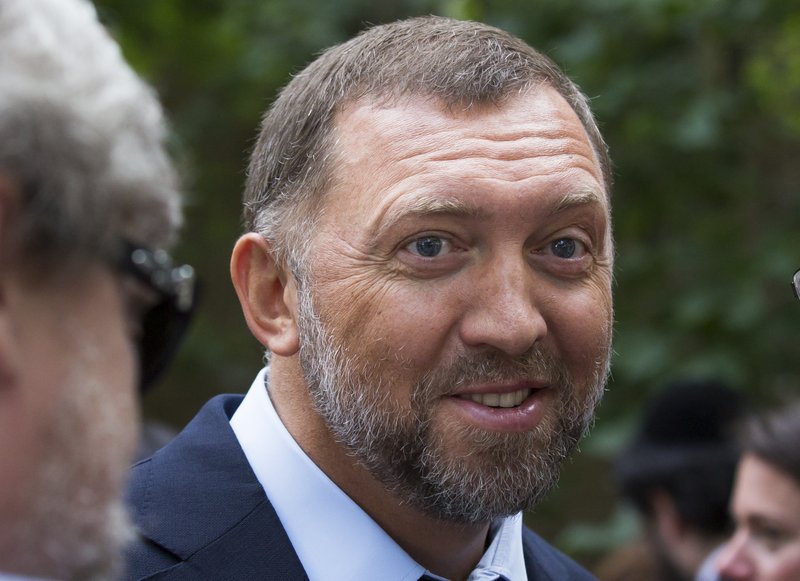WASHINGTON -- Congress is reviewing the decision by President Donald Trump's administration to lift sanctions on companies owned by Oleg Deripaska, an influential Russian oligarch with close ties to President Vladimir Putin, Democrats said Friday.
The reviews could fuel a congressional effort to block the administration's decision, which came after an aggressive lobbying and legal campaign against the sanctions by Deripaska's corporate empire.
Sen. Charles Schumer of New York, the Democratic leader, laid the groundwork to block the lifting of the sanctions Friday, filing a congressional resolution disapproving of the move by the Treasury Department.
In a statement accompanying the resolution, Schumer said "critical questions" remained unanswered about the agreement to lift the sanctions between the Treasury Department and Deripaska's companies, including the aluminum giant Rusal.
If a formal review process -- which is being conducted by multiple committees, including the bipartisan staff of the Senate Banking Committee -- is unable to resolve those questions to his satisfaction, Schumer signaled that he would push forward with the resolution.
To keep the sanctions in place, the resolution would have to be approved by both chambers of Congress before Jan. 18. That seems unlikely, given that it would require the Senate's Republican majority to split with the administration. In the absence of congressional action, the sanctions would automatically be lifted from Rusal and the holding company that controls it, EN+, as well as a third Deripaska company.
The sanctions, which were first imposed on Deripaska and his companies last spring, have created a tricky situation for both the administration and its Democratic critics, who contend that Trump has been too soft on Russia.
The goal of the sanctions was to punish the Russian government and key supporters for Moscow's interference in the 2016 presidential election and other hostile acts.
The Treasury Department's justification for the sanctions noted that, in addition to Deripaska's connections to the Russian government, he had been accused of having ties to organized crime; committing extortion, racketeering and bribery; and even ordering the killing of a rival businessman.
More recently, he has emerged as a bit player in the special counsel's investigation into Russian interference in the election and any connection to the Trump campaign.
But the sanctions had roiled the global aluminum market, leading even some sanctions advocates to acknowledge unintended negative effects on companies in the United States, Ireland, Sweden, Jamaica, Guinea and elsewhere.
The solution approved by the Treasury Department would lift the sanctions against Deripaska's companies in exchange for him reducing his stake in EN+ from approximately 70 percent to less than 45 percent, and giving up control of that company and Rusal.
Deripaska himself would remain on the sanctions list, the department said, casting the agreement as a way to punish the oligarch by separating him from his companies without creating broader economic problems.
Rep. Lloyd Doggett, D-Texas, accused the administration of approving "a Rusal ruse" to "cover for one of Putin's closest buddies."
Other Democrats contended the Treasury Department was trying to ram the sanctions-relief decision through before the new Congress had time to stop it, and before the special counsel issued findings that might touch on Deripaska's work with Paul Manafort, Trump's former campaign chairman and a target of the special counsel investigation.
In a letter sent Friday to Treasury Secretary Steven Mnuchin, Sen. Robert Menendez of New Jersey questioned whether Deripaska's companies had agreed to the terms. Menendez, the top Democrat on the Senate Foreign Relations Committee, which is also reviewing the sanctions decision, asked Mnuchin how the Treasury Department could "ensure that Mr. Deripaska does not retain and exercise informal influence over the decision making and operations of Rusal."
The department referred questions to a spokesman, whose email said he was "currently out of the office on furlough," presumably because of the government shutdown.
A Section on 01/06/2019

